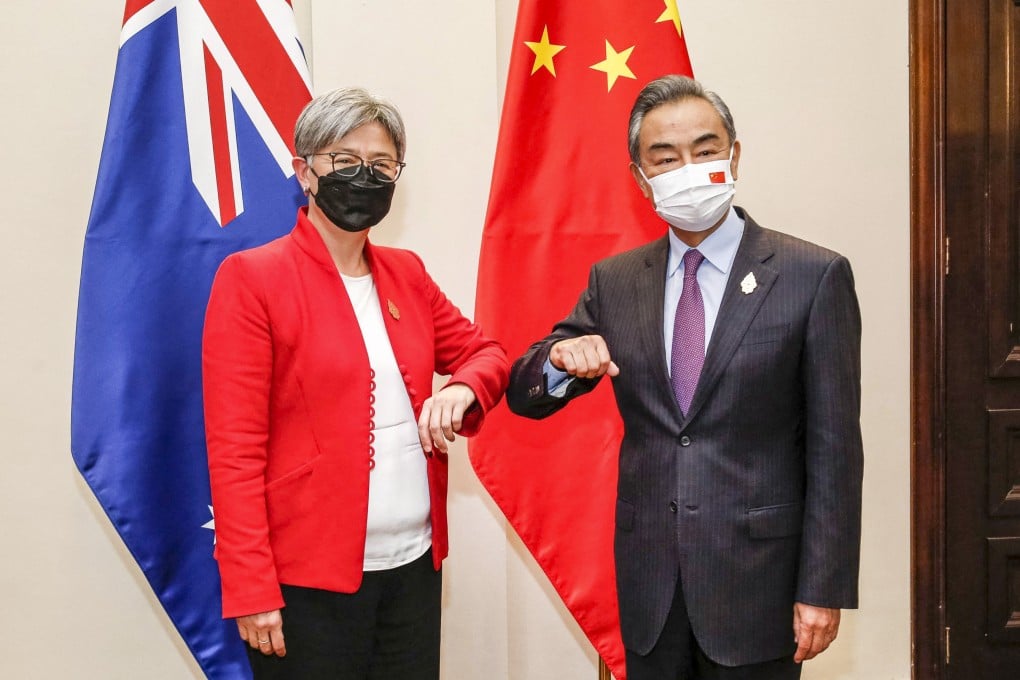Advertisement
Australian and Chinese foreign ministers meet as ‘first step’ in efforts to restore relations
- New Foreign Minister Penny Wong meets her Chinese counterpart Wang Yi at a G20 meeting in Bali
- Prime Minister Anthony Albanese says: ‘We should cooperate where we can. But we will stand up for Australian values where we must’
Reading Time:2 minutes
Why you can trust SCMP
51

Australia’s new foreign minister met her Chinese counterpart on Friday, the first meeting between the two countries’ foreign ministers since 2019 as the new government in Canberra seeks to get the relationship with Beijing back on track.
China is Australia’s largest trading partner but their relations turned sour after the former government led by Scott Morrison pushed Beijing to investigate the origin of the coronavirus in 2020.
China responded by imposing tariffs on exports of wine and barley, as well as blocking trade in other goods.
Advertisement
With the election of a new government in Canberra in May, both sides have been trying to repair the relationship.
Prime Minister Anthony Albanese said the meeting between the two foreign ministers was just the “first step” in the process.
Advertisement
“We should cooperate where we can. But we will stand up for Australian values where we must,” Albanese told a news conference on Saturday after high-level talks aimed at convincing Beijing to drop punitive trade sanctions yielded no result.
Advertisement
Select Voice
Choose your listening speed
Get through articles 2x faster
1.25x
250 WPM
Slow
Average
Fast
1.25x